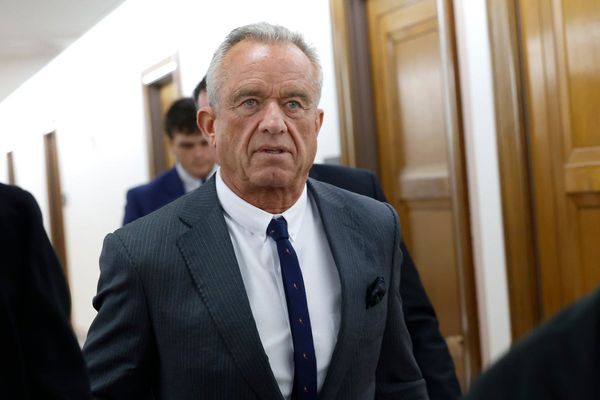
What is the energy security strategy?
Soaring energy prices are helping to create a cost-of-living crisis, with the average family’s energy bill rising by 54%. The energy price cap has been raised to £1,971 and a further increase is expected later this year, which would take the average household bill to about £2,300. The government has responded by offering a one-off £200 discount on bills from October, to be paid back over five years.
The UK is not alone: energy prices are rising around the world as industries struck by Covid-19 lockdowns resume operations, and energy supplies still need to ramp up after plunging two years ago during the first lockdowns. The war in Ukraine is adding to the problem: Vladimir Putin has used his dominance over EU energy supplies (Russia supplies 40% of Europe’s gas, and 60% of Germany’s) as a weapon of war, and turned down the gas taps by a quarter before the invasion.
Putin could tighten supplies still further, and in any case the EU wants to move away from Russian fossil fuels to stem the flow of money to the Kremlin war machine – Europe has paid more than €15bn (£12.6bn) for Russian gas, oil and coal since the invasion began.
The UK relies less on Russian fuel, which makes up only 3% of UK gas supplies and about 8% of oil, but British consumers will be hit anyway as the price of gas is set by international markets that are badly affected by the war.
Now the government is publishing a strategy to secure the UK’s energy supplies and try to dampen soaring costs for consumers and industry.
What will be in it?
Renewable energy will play a significant role, with the government planning to rapidly increase the goal for offshore wind generation, and relax the planning rules that have prevented onshore windfarms being built in England for most of the last decade.
Nuclear power will get a boost, with the government seeking to help investors expand the UK’s reactor fleet. Keeping the UK’s existing nuclear power stations open as long as possible will help provide stability through the current crisis and beyond, but any new reactors are likely to take more than a decade to start producing power.
Fossil fuels will also be a big focus for the strategy, with the government seeking to expand the UK’s supplies of gas and oil, pumping more from the North Sea and making overtures to big Middle Eastern suppliers such as Saudi Arabia. New licences for the North Sea, already under way, will be brought forward.
What about fracking?
The government is leaving the door open to fracking, saying that it could be allowed if health and safety conditions are met, but few in Whitehall see any real future for fracking in the UK. Fracking at scale would require the industrialisation of swathes of the UK’s landscape, would face huge local opposition, would be expensive and would take years to produce any gas. It is not a solution to the current crisis and the carbon dioxide emissions it would generate make it unsuitable for any future crisis.
Could we go back to coal?
Coal, the dirtiest form of electricity generation, is to be phased out in the UK by 2024. But the government is understood to have made informal contacts to the UK’s remaining coal operators – EDF, Uniper and Drax, which has converted its boilers to biomass but could feasibly return to coal – as a contingency.
Whitehall sources claim this is only a question of sensibly keeping options open in case of deepening crisis, rather than overtures to a coal renaissance.
What will not be in the strategy?
A windfall tax on fossil fuel companies. Such a tax would have serious backing – the International Energy Agency, regarded as the gold standard on energy policy advice and not known for its radicalism, has advocated a windfall tax in the EU, with the proceeds to be used to ease energy bills for vulnerable people. Labour and the Liberal Democrats have also called for one in the UK.
Unfreezing the fuel duty escalator would raise billions that could be recycled to the poorest. Petrol taxes have been kept steady since 2010, resulting in an £11bn loss to the Treasury in 2019, and fuel-guzzling SUVs now make up about half of new cars bought.
Making public transport free would be a radical move to get people out of cars overnight, and slash petrol and diesel demand while leading to clearer skies, less air pollution and safer roads for walking and cycling.
And a nationwide push to insulate every home to decent standards, and install heat pumps in place of gas boilers, would slash the UK’s energy bills and end the need to import fossil fuels from this year if pursued at speed.
But these measures have been ruled out by the Treasury and other departments.
What is happening to fossil fuel companies?
Party time. They are enjoying a bonanza, with BP’s chief boasting his company was a “cash machine”, and his finance chief that he has “more money than we know what to do with”. Dangerously for the Earth’s climate, they are using this to cement their lobbying power, telling governments they should invest in expanding oil, gas and even coal.
But an increasing number of political leaders are seeing the war in Ukraine as a sign that clean, domestically produced renewable energy can bolster national security.
What will all of this do to net zero?
The government is expected to reaffirm its commitment to reach net zero greenhouse gas emissions by 2050, despite agitation from a small number of rightwing Tory backbenchers and Nigel Farage. Boris Johnson is said to be a personal champion of green issues within the cabinet, and Michael Gove, the secretary for levelling up, spoke out strongly in favour of net zero this week.
Are energy prices the only factor behind the cost-of-living crisis?
No, the prices of food, clothing and other goods are also rising. Inflation is affecting many countries as economies recover from the Covid-19 recession, and the war in Ukraine has added to pressures, particularly over food as Ukraine and Russia are leading grain and oil exporters. But another factor unique to the UK that is raising prices is Brexit, as imports and exports now face extra costs, paperwork, staff shortages and other barriers. But don’t expect this government to admit that.







